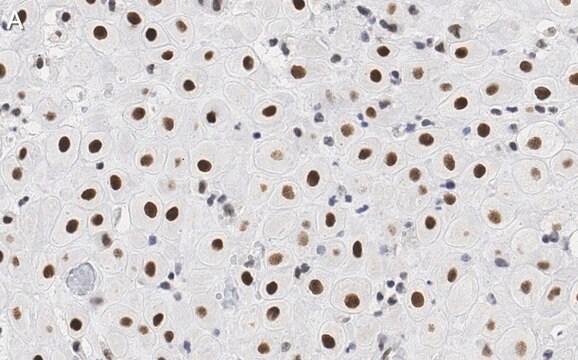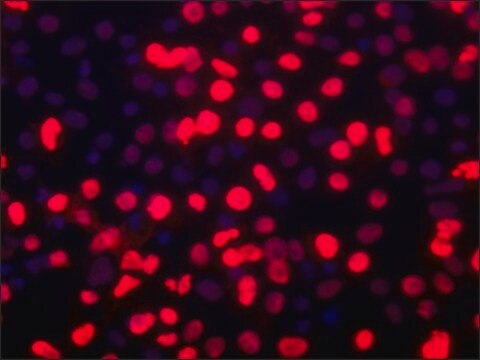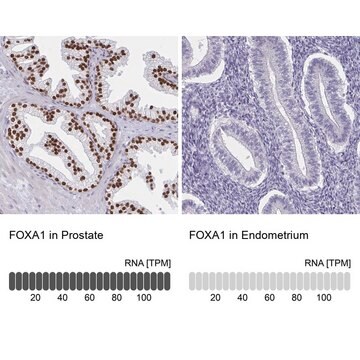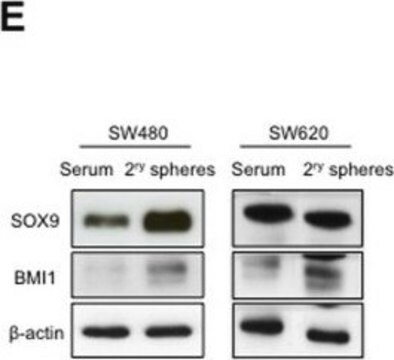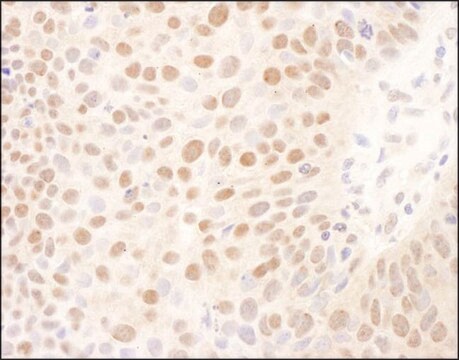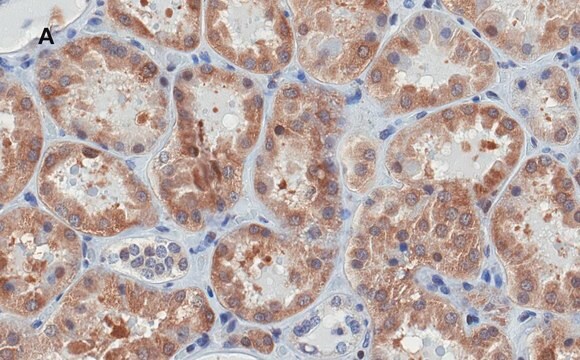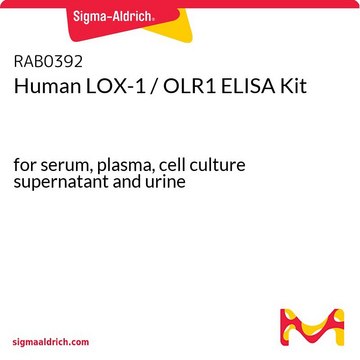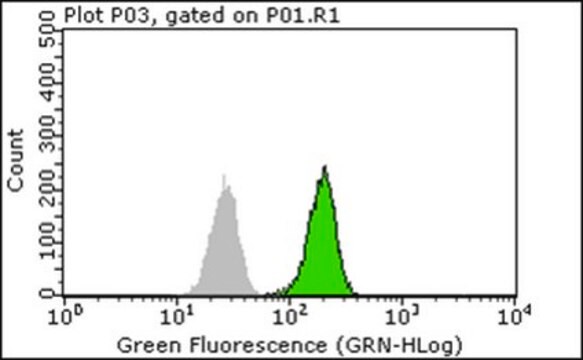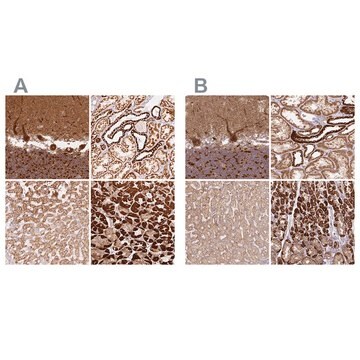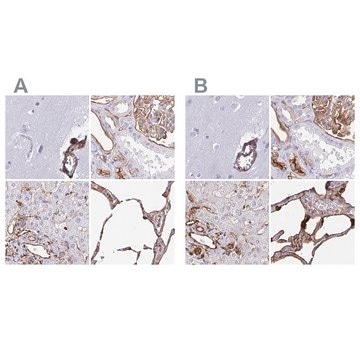05-637-AF488
Anti-Bmi-1 Antibody, clone F6, Alexa Fluor™ 488
clone F6, from mouse, ALEXA FLUOR™ 488
Synonym(s):
Polycomb complex protein BMI-1, Polycomb group RING finger protein 4, RING finger protein 51, Bmi-1
About This Item
Recommended Products
biological source
mouse
Quality Level
conjugate
ALEXA FLUOR™ 488
antibody form
purified antibody
antibody product type
primary antibodies
clone
F6, monoclonal
species reactivity
human, monkey
species reactivity (predicted by homology)
rabbit (based on 100% sequence homology), mouse (based on 100% sequence homology), rat (based on 100% sequence homology)
technique(s)
immunocytochemistry: suitable
isotype
IgG1
NCBI accession no.
UniProt accession no.
shipped in
wet ice
target post-translational modification
unmodified
Gene Information
human ... BMI1(648)
General description
Immunogen
Application
Epigenetics & Nuclear Function
Nuclear Receptors
Quality
Immunocytochemistry Analysis: A 1:100 dilution of this antibody detected Bmi-1 in HepG2 cells.
Target description
Physical form
Storage and Stability
Other Notes
Legal Information
Disclaimer
Not finding the right product?
Try our Product Selector Tool.
Storage Class Code
10 - Combustible liquids
WGK
WGK 2
Flash Point(F)
Not applicable
Flash Point(C)
Not applicable
Certificates of Analysis (COA)
Search for Certificates of Analysis (COA) by entering the products Lot/Batch Number. Lot and Batch Numbers can be found on a product’s label following the words ‘Lot’ or ‘Batch’.
Already Own This Product?
Find documentation for the products that you have recently purchased in the Document Library.
Our team of scientists has experience in all areas of research including Life Science, Material Science, Chemical Synthesis, Chromatography, Analytical and many others.
Contact Technical Service